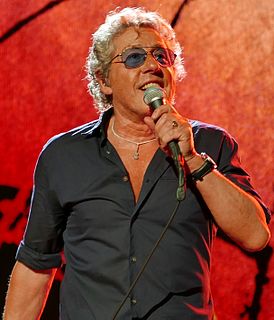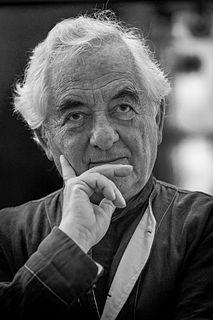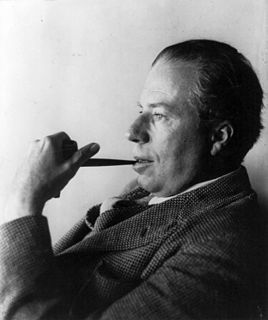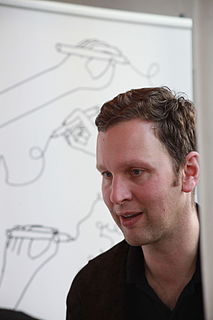A Quote by George Steiner
All serious art, music, literature is a critical act. It is so, firstly, in the sense of Matthew Arnold's phrase: "a criticism of life." Be it realistic, fantastic, Utopian or satiric, the construct of the artist is a counter-statement to the world.
Related Quotes
I hate orthodox criticism. I don't mean great criticism, like that of Matthew Arnold and others, but the usual small niggling, fussy-mussy criticism, which thinks it can improve people by telling them where they are wrong, and results only in putting them in straitjackets of hesitancy and self-consciousness, and weazening all vision and bravery.
Science begins with the world we have to live in, accepting its data and trying to explain its laws. From there, it moves toward the imagination: it becomes a mental construct, a model of a possible way of interpreting experience. The further it goes in this direction, the more it tends to speak the language of mathematics, which is really one of the languages of the imagination, along with literature and music. Art, on the other hand, begins with the world we construct, not with the world we see. It starts with the imagination, and then works toward ordinary experience.
My overall approach toward art is to remain as open as possible in front of the world, to always be curious, not to be afraid to experiment, and have a sense of self-criticism and a general criticism toward the surrounding. Also, trying to make a difference between serious research and pure gag! And making as few compromises as possible toward doing things that might not be accepted by the majority of society, even if this dominant society is the one which is ruling the art world. To keep this fundamental idea, even if it's a bit trivial: to have the desire to transform the world.
In fantasy stories we learn to understand the differences of others, we learn compassion for those things we cannot fathom, we learn the importance of keeping our sense of wonder. The strange worlds that exist in the pages of fantastic literature teach us a tolerance of other people and places and engender an openness toward new experience. Fantasy puts the world into perspective in a way that 'realistic' literature rarely does. It is not so much an escape from the here-and-now as an expansion of each reader's horizons.
I define Inner Space as an imaginary realm in which on the one hand the outer world of reality, and on the other the inner world of the mind meet and merge. Now, in the landscapes of the surrealist painters, for example, one sees the regions of Inner Space; and increasingly I believe that we will encounter in film and literature scenes which are neither solely realistic nor fantastic. In a sense, it will be a movement in the interzone between both spheres.
It was the essence of life to disbelieve in death for one's self, to act as if life would continue forever. And life had to act also as if little issues were big ones. To take a realistic attitude toward life and death meant that one lapsed into unreality. Into insanity. It was ironic that the only way to keep one's sanity was to ignore that one was in an insane world or to act as if the world were sane.
One task of literature is to formulate questions and construct counterstatements to the reigning pieties. And even when art is not oppositional, the arts gravitate toward contrariness. Literature is dialogue: responsiveness. Literature might be described as the history of human responsiveness to what is alive and what is moribund as cultures evolve and interact with one another.
Contemporary art is based on that an artist is supposed to go into art history in the same way as an art historian. When the artist produces something he or she relates to it with the eye of an art historian/critic. I have the feeling that when I am working it is more like working with soap opera or glamour. It is emotional and not art criticism or history of art.
In the spiritual domain, criticism is love turned sour... If criticism becomes a habit, it will destroy the moral energy of the life and paralyze the spiritual force... Whenever you are in a critical temper, it is impossible to enter into communion with God. Criticism makes you hard and vindictive and cruel, and leaves you with the flattering unction that you are a superior person. It is impossible to develop the characteristics of a saint and maintain a critical attitude.







































